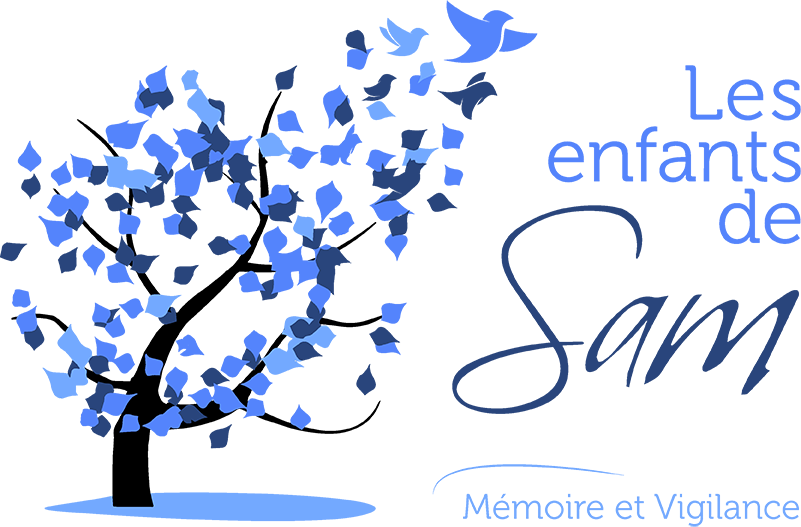The conveyors of memory
The Les Enfants de Sam (Sam’s Children) project aims primarily to be educational. This website must therefore be a useful resource for teachers and students. In secondary school programs this ranges from asking questions about the Second World War to how memory is constructed, how to present that and most importantly, how to continue to tell the story so it is never forgotten. This has two aspects:
- To pass on information in a ‘horizontal’ way, in ever-increasing circles to include each member at the centre of a group, each different in their own way, and to be able to work in successive manifestations which are complementary or conflicting (such as the family, the survivor community, friendship groups and society in general).
- In a vertical way, between generations at the heart of each group.
Thus it is a question of how to pass on and keep alive the memories that are at the heart of this project, whilst prioritising educational space and settings. .
- The space:
There are multiple participants involved in this project, teachers (of History, Humanities, Philosophy, Visual Arts, Teacher Librarians etc), eyewitnesses or survivors, artists, academics … thus some may appear to have opposing views. Sometimes they cross over each other and there are overlapping accounts. Some can be proven by research and History courses in the form of personal, individual accounts given by eyewitnesses, including the contributions of documentaries in the media; - The setting:
In a student’s curriculum these questions can be repeated in different forms according to the specifications of different programs, the standard of a teacher and the choices they make, from primary school to final year level. Also, witnesses can become those who knew the survivors to pass on their story. For example, those who have recorded or heard the accounts of survivors now departed… how can they pass on the accounts? Is it the same account or is it different? How do students regard these accounts (that are second hand). An example of this is Malka Braun who has taken up the baton from her father, Sam Braun.
What this project wants to feature
What can we take from a survivor’s story? What does a student or teacher make of a survivor’s story? How do they reconcile what they hear, or what they understood of what the survivor said with what they are learning or have learned at school, or in their family circle and from other formal sources? What are the facts? What are the fundamental truths and what could be fiction? Accounts from a life, from a real life or from one’s own life? Is the survivor’s story only facts, as we filter it through other information with the added value of “human experience” in the classroom. Or is it of a philosophical or political nature? Is it part of the meaning of life and participation in community life? Is it exclusively related to the past, or does it have as much to say about the present and the future?
Aside from that, this project also aims, considering the same challenges, to reach the general public who are interested in these issues. For those who would like to contribute to the site with stories from the past and accounts of what they saw or experienced in the Holocaust. In addition, contributions which deal with genocide and crimes against humanity. Contributions discussing how to maintain vigilance amongst us all with regard to other tragic events that have occurred. To also be vigilant with regard to political, social and cultural issues which can have the same catastrophic outcomes. The association called “Enfants de Sam – Mémoire et Vigilance” (Sam’s Children – Remembrance and Vigilance) also tries to include reflections and information gathered from conferences and public debates.
Being called “Enfants de Sam – Mémoire et Vigilance” (Sam’s Children – Remembrance and Vigilance) it is based upon Sam Braun the person, and what he did. Those who have been gifted his legacy are his children and his family, together with all those who wish to work in the same spirit. People who do not want past tragedies to be forgotten, who want to remain vigilant with regard to present-day tragedies and possible tragedy in the future.



